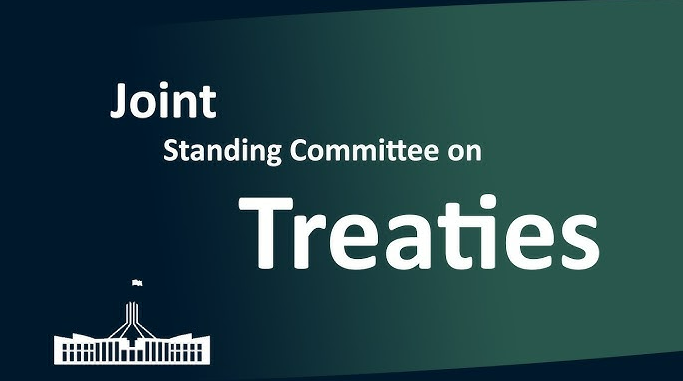Experts from the Australian Institute for Infectious Disease (AIID) have presented evidence to the Australian Parliament’s Joint Standing Committee on Treaties, emphasising the importance of strengthened international cooperation to prevent and respond to future pandemics.
On October 23 2025, Associate Professor Suman Majumdar, Chief Health Officer at the Burnet Institute, and Associate Professor Jonathan Liberman, Associate Professor in Law and Global Health at the University of Melbourne, spoke to the AIID’s written submission to the committee earlier this year.
The Committee is examining the 2024 amendments to the International Health Regulations (IHR); a set of legally binding international rules that guide how countries prepare for and respond to global health emergencies. The amended IHR, along with the more substantial pandemic agreement (or treaty), which is in the final stages of adoption, are strengthened global health instruments developed as a result of lessons from the COVID-19 pandemic.
Associate Professor Majumdar said the AIID strongly supports Australia’s membership of the amended IHR as State Party.
“The world was not ready for the COVID-19 pandemic, and we must not repeat that mistake,” Associate Professor Majumdar told the Committee.
“These global health instruments […] provide the tools that we didn’t have last time,” Associate Professor Majumdar said.
“They will strengthen the international cooperation needed to detect and respond effectively and will increase the chances of preventing pandemic escalations from eventuating.”
He highlighted the growing risks of future pandemics, driven by climate change, population movement, and geopolitical instability.
“Stronger global cooperation is in Australia’s direct interest as it relates to health and emergency preparedness. Infectious diseases threats don’t respect borders. What happens elsewhere can reach us very quickly. Protection of one population is deeply dependent and linked to the protection of another population.”
Associate Professor Liberman outlined the practical changes introduced through the IHR amendments, including a new “pandemic emergency” alert level, broader national preparedness requirements, and improved coordination mechanisms, including for more equitable access to health products.
“We see the IHR amendments as an important set of changes—incremental, building on the existing system, learning from some of the lessons that we learned through the course of the COVID-19 pandemic,” Associate Professor Liberman said.
“[The core capacities in particular] broaden out to cover preparedness, and they go into a number of areas that weren’t previously covered including access to health services, health products and information, and combating misinformation.”
Associate Professor Liberman also noted that State Parties to the amended IHR still retain sovereignty to make decisions in the best interests of their citizens.
“[The amended IHR] don’t give WHO power to impose direct health measures for states parties—whether lockdowns, other restrictions or vaccination mandates,” he said.
“WHO has an important mandate and responsibilities, but […] it’s up to individual State Parties to decide how they’re going to respond domestically.
Both witnesses stressed that withdrawing from global cooperation mechanisms, such as the WHO or the IHR framework, would increase health and economic risks to Australia.
“The best way to deal with these pandemics […] is to act quickly, to pick up these threats where they occur at the source and to act to control and contain them there,” Associate Professor Majumdar said.
“Stopping an outbreak from becoming an epidemic, stopping an epidemic from becoming a pandemic—the only way to do that is by countries working together.”
The AIID’s submission to the inquiry emphasised that Australia’s continued active participation in the amended IHR and pandemic treaty negotiations will better protect Australians from future threats by strengthening international cooperation and are an important framework for stronger partnerships in the Indo-Pacific region.
The Committee’s hearings form part of the parliamentary process to consider Australia joining the IHR amendments, adopted by the World Health Assembly last year.
